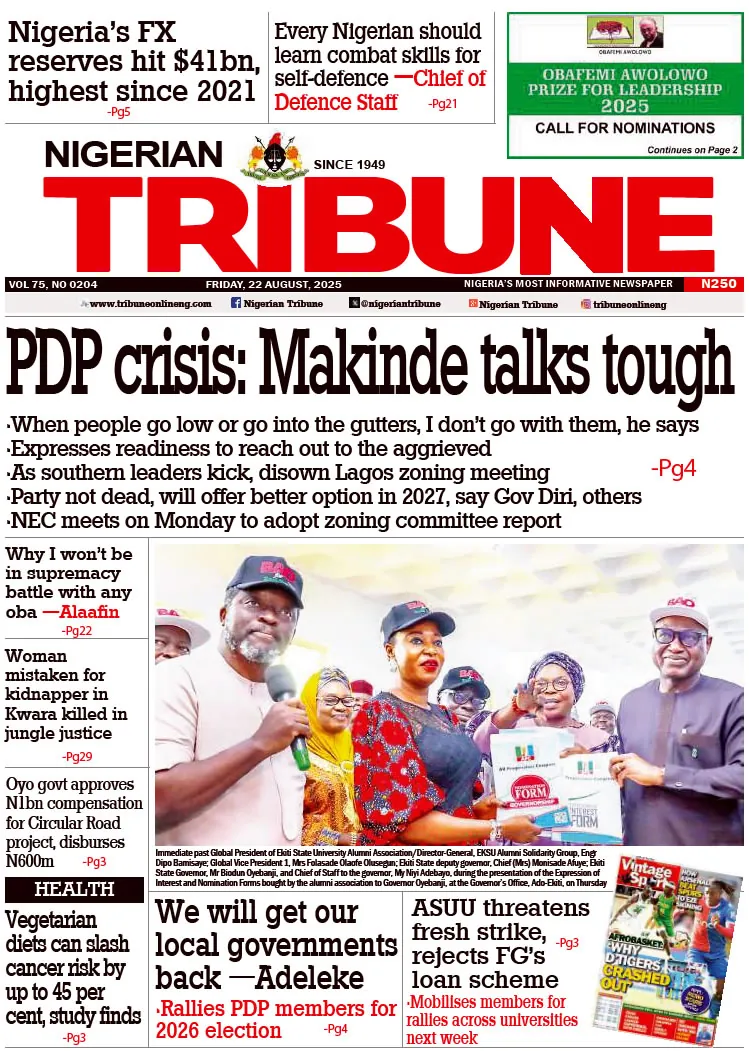A paradoxical report was recently published on Nigeria, Nigerians, and the Nigerian government. A product of the 2025 UN World Happiness Report, it was produced by the University of Oxford’s Wellbeing Research Centre, in partnership with Gallup and the UN Sustainable Development Solutions Network. Covering 147 countries, it evaluates well-being through self-reported happiness and prosocial behaviors like donating, volunteering, and offering help to strangers. The report ranks Nigeria 7th globally for helping strangers and, by that very fact, places the country ahead of many wealthier nations than it in acts of spontaneous kindness and personal generosity. The report further states that in spite of the acute suffering in the land, as manifested in worsening poverty and institutional dysfunction, the people of Nigeria remain among the most generous and humane people in the world. It sees this as an underscore of Nigeria’s “enduring social spirit, even as governments at all levels continue to fail their citizens.” The report goes on to reveal the underbelly of Nigerians’ happiness. According to it, beyond the glowing endorsement of the humanity of Nigerians, the ranking exposes a more troubling reality. For instance, while Nigerians are happy in their immediate social milieu, they rank 105th out of 147 countries in overall happiness and well-being. This stands as a sharp indication of the depth of dissatisfaction and hardship that Nigerians encounter under their country’s broken public systems.
What is not contradictory or muffled in the report, however, is that Nigerians have a familiar pattern of being a compassionate, community-oriented people who navigate life in this manner. This is quite significant in a country that possesses little or no institutional trust, with government structures routinely failing in their expected roles of delivering basic accountability, justice, and social support. A simple question asked respondents in the report seems to have explained this social placement unarguably. It was, “What happens if you lose your wallet?” Respondents who answered that they would get it back if found by a stranger ranked 33rd; if found by a neighbour, 71st; and if found by the police, 126th. What the above translates into is that in the area of trust, Nigerians overwhelmingly trust individuals over and above public institutions. Broken down to its basics, what this means is that Nigerians do not trust the government or their law enforcement, which is a devastating commentary on public governance. Contrarily, Nigerian citizens, by the interpretation of these responses, prefer to turn to one another for help, salvation, and protection from their social existential travails rather than the Nigerian state.
The report then uses the above responses as part of a broader trend noticeable in sub-Saharan Africa, where personal networks exist that fill the void and compensate for huge governmental failures. In this ranking of countries that help strangers, Kenya places 4th, Liberia 2nd, and Sierra Leone 5th. These countries, however, fare poorly in the overall happiness and institutional trust index. As a final conclusion of the report, it warns that “whilst Nigeria’s grassroots compassion is admirable and resilient, it is also a coping mechanism—not a substitute for functional systems.” In its conclusion, the report says: “Helping strangers… becomes a vital, direct way to do good when larger structures have collapsed. This dynamic also explains Nigeria’s lower ranking in formal charitable donations (45th) compared to its high rating for direct kindness. In a nation where public institutions are widely distrusted, Nigerians prefer face-to-face giving over channeling support through official platforms.” Indeed, Nigerians are generally good, hardworking, and resilient people, thus making the University of Oxford’s Wellbeing Research Centre’s observations about the Nigerian situation apt. Nigerians are equally a very resilient people. The question we want to ask is: If Nigerians can be so kind and generous to themselves despite the adverse national conditions they find themselves in, what would happen if things were better? This makes it imperative to give the government a wake-up call not to take the people for granted but to engage in activities that will shore up the people’s belief in those who occupy governmental positions. The government should then harness the positive values inherent in the people to chisel out a better country from the one currently available.
ALSO READ FROM NIGERIAN TRIBUNE: LIST: PDP, APC, LP bigwigs currently in ADC coalition against Tinubu
Nigerians are aware that their country has vast natural resources trapped beneath its surface. The current report should thus be a wake-up call to the government to make life better for Nigerians. It is embarrassing enough that a country so blessed by nature has the majority of its citizens wallowing in abject poverty and despair.
WATCH TOP VIDEOS FROM NIGERIAN TRIBUNE TV
- Let’s Talk About SELF-AWARENESS
- Is Your Confidence Mistaken for Pride? Let’s talk about it
- Is Etiquette About Perfection…Or Just Not Being Rude?
- Top Psychologist Reveal 3 Signs You’re Struggling With Imposter Syndrome
- Do You Pick Up Work-Related Calls at Midnight or Never? Let’s Talk About Boundaries







